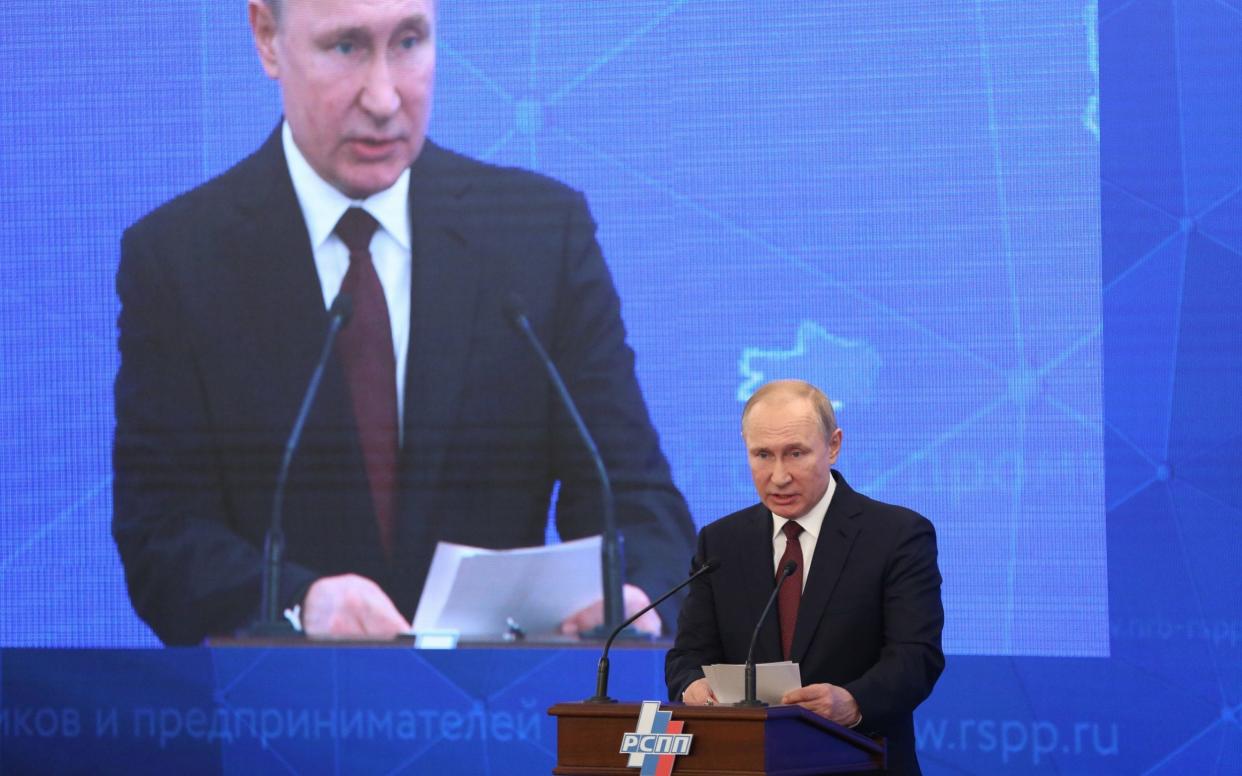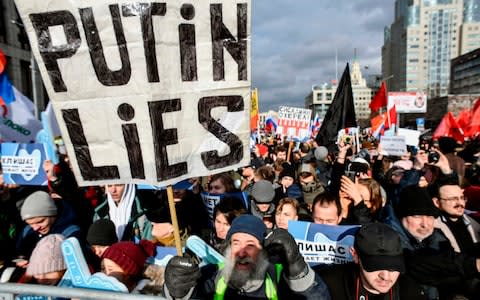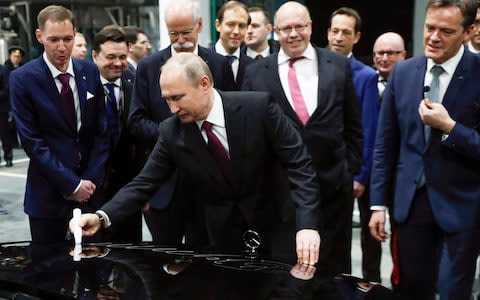Russian sites delete Putin graffiti articles under law against 'disrespecting' government

Russian news websites have been forced to delete articles about graffiti insulting Vladimir Putin under new legislation against “disrespect” of the government.
On Sunday, news portals in the historic city of Yaroslavl began reporting that vandals had spray-painted graffiti on the columns of the regional police headquarters calling Mr Putin a gay slur.
But least five sites took down these articles in the ensuing hours. In one example, an article about the graffiti disappeared from the Yaroslavl site of the national newspaper Moskovsky Komsomolets.
Olga Prokhorova, editor of site 76.ru, said employees of the Roskomnadzor communications oversight agency and the FSB security service called her five times on Sunday with an “insistent request to delete the material from our site”.
The site Yarkub said on social media that Roskomnadzor had sent an email and called its editor demanding it delete its news story by midnight in what it called an “act of censorship”.
The crackdown on the news stories stems from amendments signed by Mr Putin last month which ban “insulting” information that expresses an “obvious disrespect for society, the state, official state symbols, the constitution or the organs of state power”.
Violators can be fined or be jailed for up to 15 days for repeat offences.

The Yaroslavl incident appeared to be the first case of the legislation being enforced. Tech news site TJournal published an email in which Roskomnadzor cited the law to demand that a news site delete its graffiti article.
The communications agency later said it was conducting “prophylactic work” to stop the spread of information forbidden by the new legislation.
Mr Putin also signed “fake news” amendments last month that prohibit spreading “socially significant inaccurate information under the guise of accurate messages”.
Human rights groups lambasted both this and the legislation against disrespecting the government as free speech abuses intended to counter criticism of Mr Putin.
“Today we're removing a piece with the facts of what happened. What will tomorrow bring?” Ms Prokhorova wrote.
Ratings of the president's popularity and trustworthiness declined in the wake of an unpopular hike in the pension age at the start of the year.
The Kremlin has been tightening its grip on the internet with a bevy of restrictive laws since social media helped fuel mass protests against Mr Putin and the ruling party in 2011-13.
Parliament is now considering legislation that would allow the Internet in Russia to be cut off from the rest of the world wide web, requiring telecoms to be able to redirect traffic through routing points controlled by the state.

Major providers planned to temporarily isolate the Russian Internet this spring as a test of these capabilities.
In reference to this legislation, activists put up a “gravestone” to Mr Putin outside a cathedral in St Petersburg on Wednesday declaring that he had “betrayed the people of Russia”.
Two activists were jailed last month in the lorry-producing industrial city of Naberezhnie Chelny for putting up a similar gravestone.

